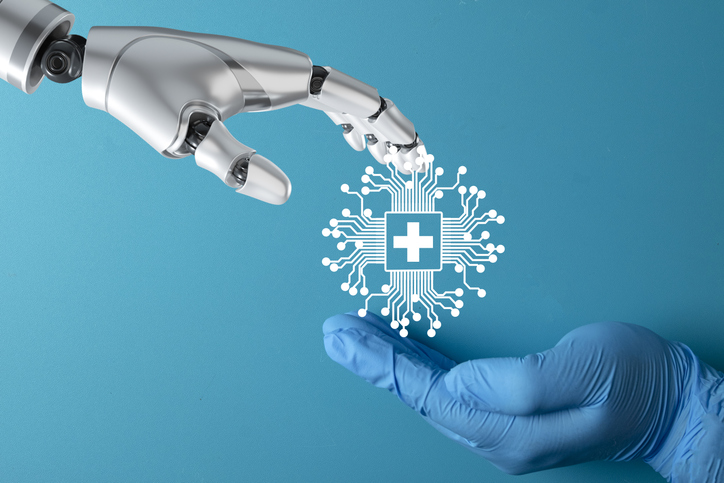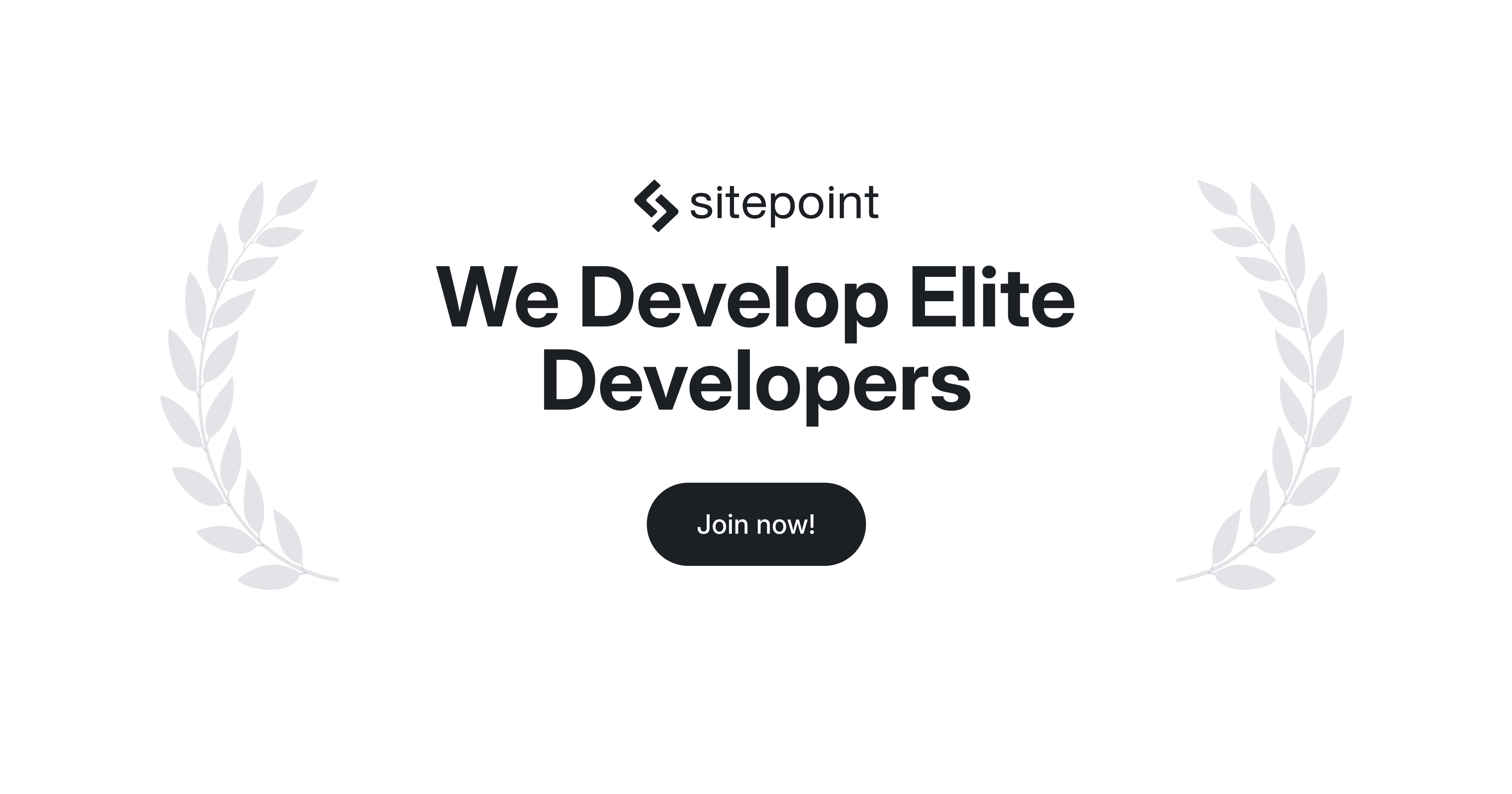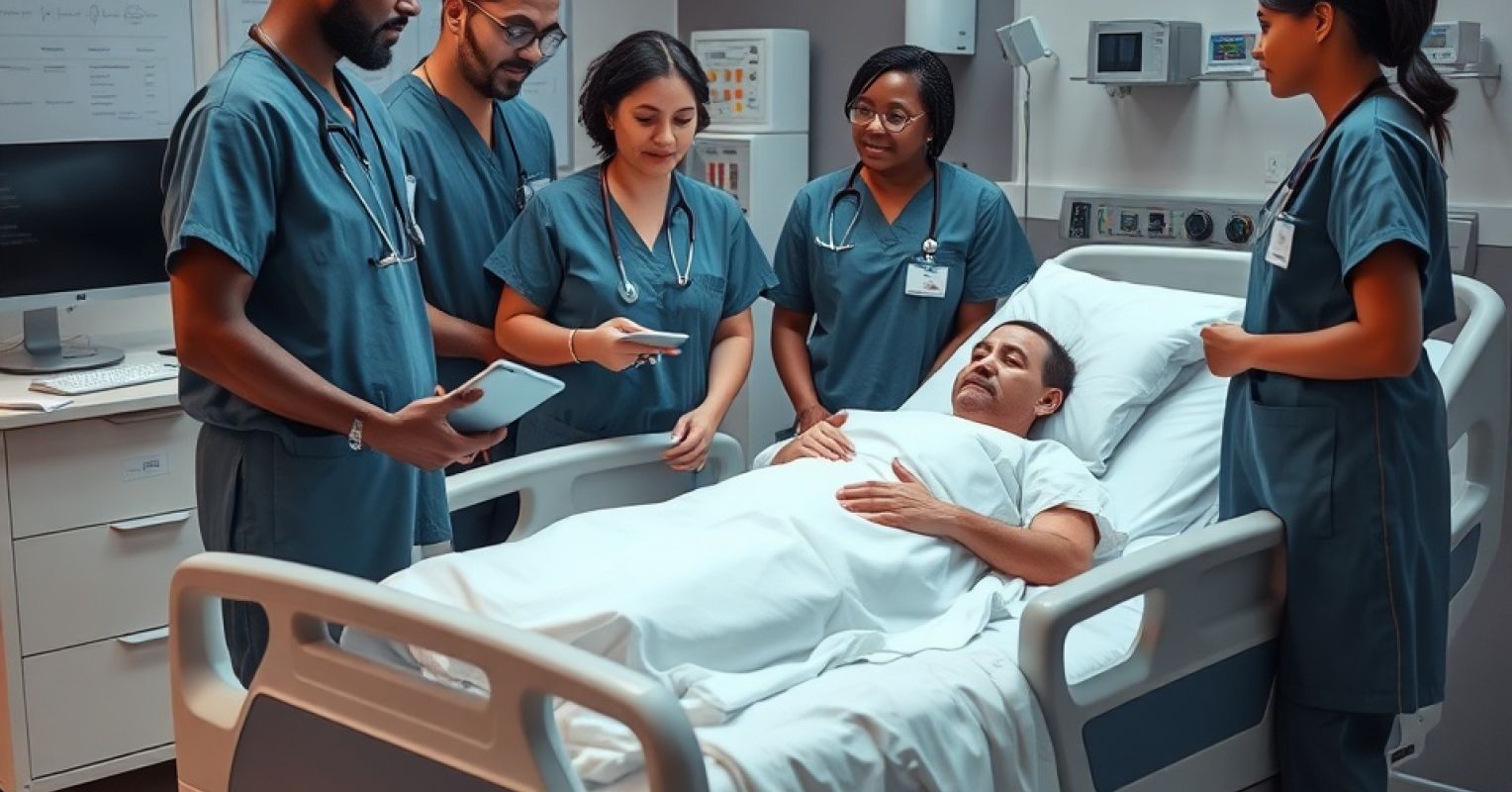#ai-in-healthcare
#ai-in-healthcare
[ follow ]
fromFast Company
1 week agoConnected data will rescue healthcare
AI plays an important role-but not by fixing fragmented data on its own. The work of organizing, connecting, and interpreting healthcare information still belongs to people and the systems they build. Where AI helps is after that foundation is in place: by bringing the right information forward at the right time, reducing the effort it takes to find what matters, and supporting better decisions in the moment of care.
Medicine
Public health
fromFortune
2 weeks agoGates Foundation, OpenAI unveil $50 million 'Horizon1000' initiative to boost healthcare in Africa through AI | Fortune
Horizon1000 will deploy AI tools to 1,000 primary healthcare clinics across Sub‑Saharan Africa by 2028, backed by $50 million to expand access and address workforce shortages.
fromApp Developer Magazine
1 year agoAI becomes a go-to health resource as hospital access strains
As OpenAI launches ChatGPT Health, allowing users to connect medical records and wellness apps for AI-driven health guidance, a new survey from Drip Hydration confirms Americans are increasingly turning to AI for medical advice. The nationwide survey explores the motivations, demographics, and regional trends behind this growing phenomenon. The data reveals where and why people are choosing AI alongside traditional medical channels in their healthcare journey.
Healthcare
fromFortune
2 weeks agoAI is becoming baked into health care. Now CEOs are focusing on patient and practitioner outcomes | Fortune
I was in San Francisco earlier this week, debating the AI dividend with a dozen CEOs of major hospital systems at a dinner sponsored by Philips. If you're Suresh Gunasekaran of UCSF Health, which consistently ranks among the world's best in health outcomes and medical research, AI is becoming baked into a more seamless patient experience. "Being a medical student, a pharmacy student, a nurse is no longer the same in the age of AI," Gunasekaran said.
Business
Healthcare
fromTechCrunch
3 weeks agoDoctors think AI has a place in healthcare - but maybe not as a chatbot | TechCrunch
ChatGPT can provide misleading medical information, yet ChatGPT Health aims to offer private, safeguarded AI health conversations and data syncing despite regulatory and security concerns.
fromTheregister
3 weeks agoClaude joins the ward as Anthropic eyes US healthcare data
Anthropic is selling Claude for Healthcare as a HIPAA-compliant way to plug its model into the plumbing of US medicine, from coverage databases and diagnostic codes to provider registries. Once wired up, Claude can help with prior authorization checks, claims appeals, medical coding, and other administrative chores that currently clog up clinicians' inboxes and sanity. "Claude can now connect to industry-standard systems and databases to help clinicians and administrators find the data they need and generate reports more efficiently," Anthropic wrote.
Healthcare
fromFast Company
3 weeks agoAI-powered health gadgets at CES 2026 are concerning experts. Here's why
Health tech gadgets displayed at the annual CES trade show make a lot of promises. A smart scale promoted a healthier lifestyle by scanning your feet to track your heart health, and an egg-shaped hormone tracker uses AI to help you figure out the best time to conceive.Tech and health experts, however, question the accuracy of products like these and warn of data privacy issues - especially as the federal government eases up on regulation.
Health
Health
fromBusiness Matters
4 weeks agoSteve Valdiserri on Building Discipline in Modern Healthcare
Steve Valdiserri transforms complex healthcare systems into measurable, operational value-based care through disciplined leadership, analytics-driven strategy, and practical health technology implementation.
Public health
fromFortune
3 weeks agoOpenAI suggests ChatGPT play doctor as millions of Americans face spiking insurance costs: 'In the U.S., ChatGPT has become an important ally' | Fortune
Expiry of enhanced ACA subsidies amid a Senate deadlock is driving Americans to increasingly use AI tools to navigate a complex, costly U.S. healthcare system.
fromBusiness Matters
1 month agoThe AI tool that could save the NHS 300m a year by cutting missed appointments
An AI-powered appointments system developed by UK health-tech company DrDoctor could save the NHS up to £300 million a year by dramatically reducing missed hospital appointments, one of the health service's most persistent and costly problems. Missed outpatient appointments cost the NHS close to £1 billion annually, tying up staff time, wasting clinical capacity and lengthening waiting lists. DrDoctor believes its new AI platform, Smart Centre, can cut non-attendance rates by around 30% by predicting which patients are most likely not to turn up and adjusting clinic capacity in advance.
Healthcare
Healthcare
fromMedCity News
1 month agoDeloitte's 2026 Healthcare Outlook: Key Findings on Confidence, Digital Health, AI and Partnerships - MedCity News
Most health plan and health system leaders expect to outperform competitors in 2026, while many express uncertainty due to policy, regulatory, and affordability pressures.
fromwww.theguardian.com
1 month agoWhat will your life look like in 2035?
In 2035, AIs are more than co-pilots in medicine, they have become the frontline for much primary care. Gone is the early morning scramble to get through to a harassed GP receptionist for help. Patients now contact their doctor's AI to explain their ailments. It quickly cross-checks the information against the patient's medical history and provides a pre-diagnosis, putting the human GP in a position to decide what to do next.
Medicine
fromwww.theguardian.com
1 month agoExperts urge caution as Trump's big bill incentivizes AI in healthcare
The Rural Health Transformation Fund is a carveout that will provide $50bn over a period of five years to states who meet certain application criteria, including consumer-facing, technology-driven solutions for the prevention and management of chronic diseases, and providing training and technical assistance for the development and adoption of technology-enabled solutions that improve care delivery in rural hospitals, including remote monitoring, robotics, artificial intelligence, and other advanced technologies.
Public health
fromKqed
1 month agoWill AI Replace Your Therapist? Kaiser Won't Say No | KQED
Kaiser declined several requests for an interview, but said in a statement that AI tools don't make medical decisions or replace human care. Rather, they hold "significant potential to benefit health care by supporting better diagnostics, enhancing patient-clinician relationships, optimizing clinicians' time, and ensuring fairness in care experiences and health outcomes by addressing individual needs."
Mental health
fromFortune
2 months agoThis Khosla Ventures-backed startup is using AI to personalize cancer care | Fortune
Cancer is not a monolith. "We speak about cancer like it's one disease, but it's more like thousands of different diseases," said Simone Korsgaard Jensen, CEO and founder of Radical Health. "On top of that, every single individual is so different. But right now we still treat it with a one-size fits-all approach. And that's where data and AI can especially step in to help."
Medicine
Medicine
fromNews Center
2 months agoSix Strategies to Reinvigorate the Doctor-Patient Bedside Encounter - News Center
Reinvigorate bedside medicine through six practical strategies to restore physical exam skills, strengthen doctor-patient relationships, and mitigate diagnostic errors amid AI integration.
Medicine
fromCornell Chronicle
3 months agoFirst WCM-Q AI Hackathon drives health care tech innovation | Cornell Chronicle
Interdisciplinary AI hackathon united medical and computer science students to develop AI-driven clinical solutions across six projects, advancing precision health and collaboration.
Artificial intelligence
fromLondon Business News | Londonlovesbusiness.com
3 months agoHow AI is reshaping UK healthcare: A strategic advantage for enterprises - London Business News | Londonlovesbusiness.com
AI integration in UK healthcare improves efficiency, accuracy, and scalability while requiring strong data governance and on-premise solutions to meet GDPR and data sovereignty needs.
fromeLearning Industry
3 months agoAI-Driven Healthcare LMS: Key Advantages, Features, And Real-World Scenarios
When implemented effectively, the healthcare LMS benefits extend far beyond training. It enhances clinical decision-making, minimizes human errors, and fosters continuous professional development. AI-driven analytics detect performance gaps early, recommending refresher courses to prevent skills degradation. By ensuring that every staff member-whether clinical, technical, or administrative-stays updated, healthcare institutions can significantly improve patient outcomes and safety standards while meeting stringent regulatory requirements.
Health
fromBusiness Insider
3 months agoHealthcare company Ensemble Health has tapped JP Morgan as it eyes a $13 billion sale or IPO in 2026
Ensemble Health, a major player in healthcare revenue management, is seeking a potential $13 billion sale or IPO next year, Business Insider has learned. Ensemble, owned primarily by private equity firms Warburg Pincus and Berkshire Partners, has tapped JPMorgan to pursue a sale, five people with knowledge of the deal told Business Insider. At the same time, Ensemble is considering an IPO and has pulled in Goldman Sachs to support the dual-track approach, three of the people said.
Healthcare
fromArs Technica
3 months agoShould an AI copy of you help decide if you live or die?
For more than a decade, researchers have wondered whether artificial intelligence could help predict what incapacitated patients might want when doctors must make life-or-death decisions on their behalf. It remains one of the most high-stakes questions in health care AI today. But as AI improves, some experts increasingly see it as inevitable that digital "clones" of patients could one day aid family members, doctors, and ethics boards in making end-of-life decisions that are aligned with a patient's values and goals.
Artificial intelligence
Public health
fromBusiness Insider
3 months agoAt ID Week, infectious disease experts talk about public health and AI in healthcare
Infectious Disease Week gathers global ID professionals to focus on AI in healthcare, biopreparedness, public health strategy, and career development amid funding and misinformation challenges.
fromwww.theguardian.com
3 months agoAI could make it harder to establish blame for medical failings, experts say
The use of artificial intelligence in healthcare could create a legally complex blame game when it comes to establishing liability for medical failings, experts have warned. The development of AI for clinical use has boomed, with researchers creating a host of tools, from algorithms to help interpret scans to systems that can aid with diagnoses. AI is also being developed to help manage hospitals, from optimising bed capacity to tackling supply chains.
Medicine
fromMedCity News
3 months agoHow Are Healthcare Leaders Tackling Automation Bias? - MedCity News
One of the biggest examples in the commercial consumer industry is GPS maps. Once those were introduced, when you study cognitive performance, people would lose spatial knowledge and spatial memory in cities that they're not familiar with - just by relying on GPS systems. And we're starting to see some of those things with AI in healthcare," Amarasingham explained.
Health
Medicine
fromAdExchanger
3 months agoPharma Advertising Was Late To Digital. Now It's Leading The Way | AdExchanger
Pharma must adopt privacy-preserving, AI-driven precision marketing to connect targeted patients with biologic and biomarker-driven therapies, making precision medicine commercially viable and accessible.
Healthcare
fromwww.theguardian.com
4 months agoImpressive for a robot': home care chatbots among AI tools being embraced by Australia's health system
An AI voice bot provides daily check-ins for elderly home-care clients, offering social interaction and health monitoring while augmenting, not replacing, in-person care.
fromLondon Business News | Londonlovesbusiness.com
4 months agoNHS waiting lists drive patients to risky choices - London Business News | Londonlovesbusiness.com
The survey of 2,000 adults found nearly a third (29%) have put off seeking care due to long waits, while more than one in five (22%) admit they have avoided seeking care altogether. Alarmingly, one in five (20%) delayed seeing a doctor even after noticing possible cancer symptoms. Doctors warn this behaviour could mean hundreds of cancers are going undiagnosed, or being caught later when survival chances are reduced.
Public health
Artificial intelligence
fromwww.independent.co.uk
4 months agoExperts join forces to help accelerate NHS use of artificial intelligence
A national MHRA-established commission will unite doctors, researchers, tech firms, and advocates to accelerate AI adoption in the NHS while safeguarding patient safety.
fromMedCity News
4 months agoAI in Healthcare: Investors' Green and Red Flags Among Startups - MedCity News
As artificial intelligence becomes a buzzword in nearly every healthcare startup pitch, investors are finding it increasingly challenging to distinguish which ones are actually worth the hype. That's why, during a Thursday panel discussion among venture capitalists at the MedCity INVEST Digital Health conference in Dallas, this question was posed: What metrics do you want to see founders highlighting more often when they're pitching, and what is one red flag that makes you question the validity of their technology? The session was moderated by Neil Patel, head of ventures at Redesign Health.
Public health
Artificial intelligence
fromFortune
4 months agoHospitals are leaning on an AI-powered therapy robot programmed to act like a little 7-year-old girl | Fortune
An AI-powered therapeutic robot named Robin provides emotional support in pediatric and elder care, easing staff workload while raising autonomy and privacy concerns.
Artificial intelligence
fromBusiness Insider
4 months agoThe billion-dollar rivalry over 'ChatGPT for doctors' just got nastier with dueling lawsuits
Two major healthcare AI companies, Doximity and OpenEvidence, are engaged in escalating lawsuits over alleged impersonation, prompt-injection attacks, trade-secret theft, and reputational harm.
fromPsychology Today
4 months agoCan We Trust AI to Save Lives?
Co-authored by Stephen O'Brien and Michael Hogan As AI becomes more autonomous, its potential for higher status and increased authority in human-AI teamwork scenarios is concerning. A serious problem arises when human trust in AI masks inappropriate reliance on AI and poor human-AI teamwork performance. This is particularly concerning in life-or-death situations where erosion of human agency can be fatal.
Healthcare
fromwww.theguardian.com
5 months agoStroke centres in England given AI tool that will help 50% of patients recover
The world-first technology analyses brain CT scans of stroke patients arriving at hospital, taking just a minute to identify the type and severity of stroke and the most appropriate treatment. It means doctors can then offer drugs or surgery much more quickly, with the system shortening the average time between patients arriving at hospital and starting treatment by one hour from 140 minutes to 79 minutes.
Public health
fromwww.theguardian.com
5 months agoThe Big Idea: why we should embrace AI doctors
But even in the best-funded clinics with the most committed professionals, standards can still fall short; doctors, like the rest of us, are working with stone age minds. Despite years of training, human brains are not optimally equipped for the pace, pressure, and complexity of modern healthcare. Given that patient care is medicine's core purpose, the question is who, or what, is best placed to deliver it?
Medicine
fromBusiness Insider
6 months agoCedars-Sinai's AI tool delivered 24/7 care to 42,000 patients. Now, doctors can focus on treatment, not paperwork.
CS Connect is an artificial intelligence-powered virtual platform where patients can access healthcare support 24/7, aiming to improve access to primary care and reduce wait times.
Digital life
[ Load more ]








